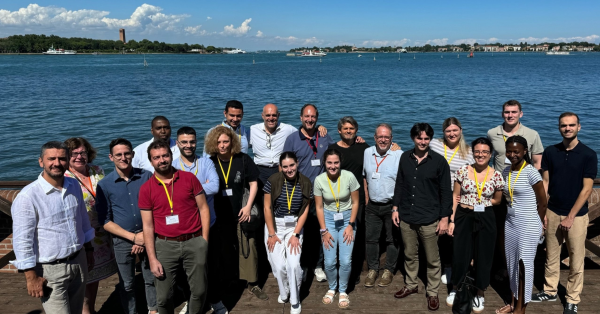In an era where sustainability is a critical global priority, two notable summer schools have taken significant strides in fostering the next generation of students committed to sustainable futures. The eighth edition of the Summer School on Organizing for Sustainable Futures and the third edition of the Advanced Transportation, Logistics, and Supply Chain Management summer school both emphasized the importance of integrated, sustainable approaches to address complex societal challenges. By exploring topics from ethical corporate practices and the circular economy to innovative transportation and logistics solutions, these programs highlighted the interconnectedness of organizational, societal, and technological transformations necessary for a sustainable world. Through diverse perspectives and interdisciplinary collaboration, participants were equipped with the knowledge and tools to drive impactful change in their respective fields.
Organizing for Sustainable Futures
The eighth edition of the Summer School on Organizing for Sustainable Futures, held from June 17 to June 20, 2024, convened a diverse group of young scholars from around the world. This year's program focused on fostering ideas that contribute to a sustainable future, addressing the Grand Transition of society from individual decision-making to organizational and societal levels.
The summer school featured a series of thought-provoking topics and discussions aimed at exploring various dimensions of sustainability and transformation. Participants delved into the evolution of transnational governance and social movement dynamics, examining how global frameworks and grassroots initiatives intersect to drive societal change. Another focal point was the concept of responsible leadership and decision-making within network firms, emphasizing the need for ethical practices in corporate environments.
Discussions also addressed transformative processes and the enabling conditions required for successful transitions to sustainability. This included exploring international business practices and their impact on human rights, highlighting the ethical responsibilities of corporations in a globalized world. The shift towards a circular economy was another critical topic, with participants investigating the challenges organizations face in adopting sustainable practices and reducing waste.
The summer school hosted 16 PhD students from various esteemed institutions, including Ca' Foscari University of Venice, University of Exeter Business School, LUISS Guido Carli, EBS University, and the University of Lausanne.
---
Advancing Sustainable Solutions in Transportation and Logistics
The third edition of the "Advanced Transportation, Logistics, and Supply Chain Management" summer school took place from July 1 to 5, 2024. This program aimed to address the pressing need for integrated and sustainable approaches in transportation, logistics, and land-use planning. By aligning market needs with these sectors, the course fostered a unified approach to tackling contemporary challenges.
Participants engaged in a curriculum designed to develop a comprehensive understanding of the synergistic engagement required among policymakers, planners, and both private and public actors. The program explored the latest innovations in technology, business models, and policymaking. Through a blend of rigorous empirical and theoretical approaches, attendees examined emerging trends, strategic scenarios, and IT and modeling tools. Demo labs, case studies, and applied projects provided practical insights into how these tools and methods can support businesses and policymakers in achieving environmental sustainability and socio-economic efficiency.
The summer school equipped participants with an original and comprehensive approach to transportation, logistics, and supply chain management. They gained valuable insights into the importance of collaboration among different sectors and the latest technological and business innovations. The program emphasized the application of these innovations to support environmental sustainability and socio-economic efficiency, preparing participants to contribute effectively to their fields.
The program welcomed 15 participants, including PhD students and professionals, who benefited from the diverse perspectives and expertise brought by their peers. This diversity enriched discussions and fostered a collaborative learning environment.
This summer school benefited from Erasmus+ funding, which supported its mission to provide high-quality education and training in sustainable transportation and logistics (2022-1-IT02-KA171-HED-000071925)























